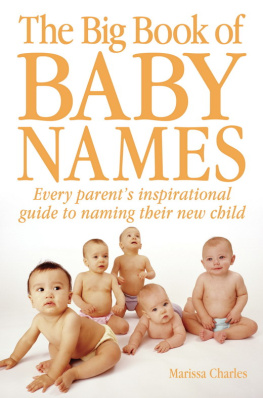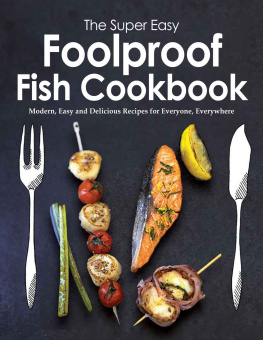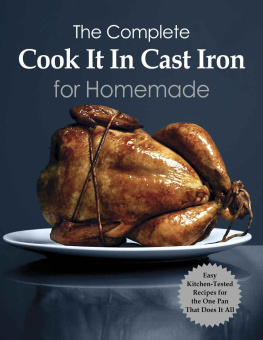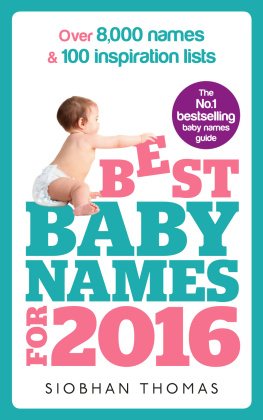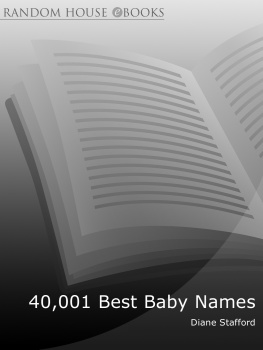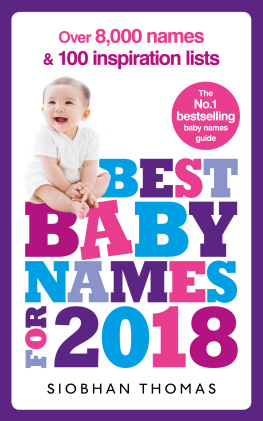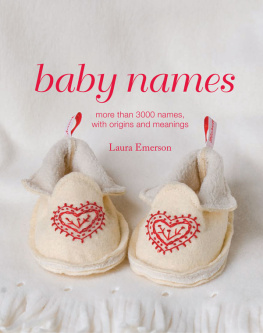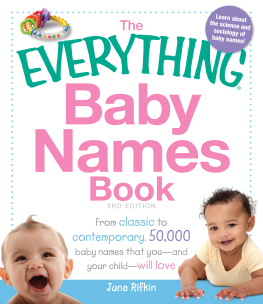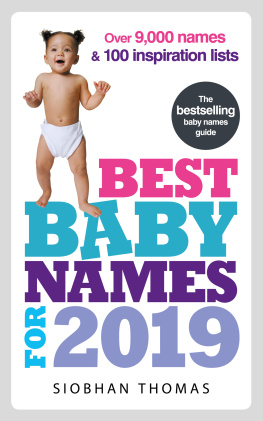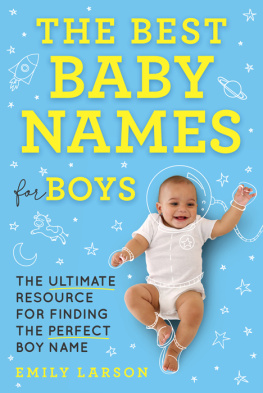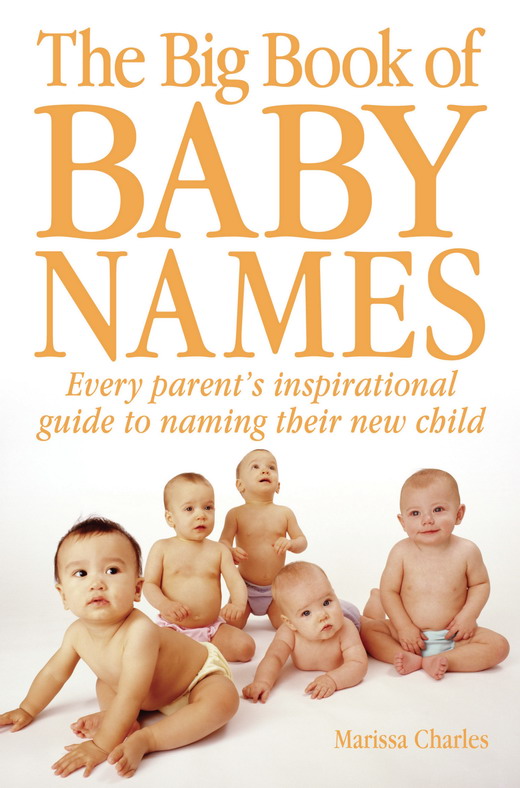

This edition published in 2012 by Arcturus Publishing Limited
26/27 Bickels Yard, 151153 Bermondsey Street,
London SE1 3HA Copyright 2004 Arcturus Publishing Limited All rights reserved. No part of this publication may be reproduced, stored in a retrieval system, or transmitted, in any form or by any means, electronic, mechanical, photocopying, recording or otherwise, without written permission in accordance with the provisions of the Copyright Act 1956 (as amended). Any person or persons who do any unauthorised act in relation to this publication may be liable to criminal prosecution and civil claims for damages. ISBN: 978-1-84858-705-2
AD000073EN Cover design by Alex Ingr
With thanks to Andrew Adamides, Lee Coventry
Contents
Naming your newborn can be a daunting task. With thousands of names to choose from, it is easy to become overwhelmed. Should you opt for the traditional Victoria, Mary or John or the 'out-there': Moon Unit or Stardust? Should you choose a name that reflects your religious beliefs or one that has been used in your family for generations? Does the name of a celebrity or current storybook hero appeal, or do you want to preserve your child's individuality by being creative and inventing something truly original? The options are seemingly endless, but leaf through the pages of this book and you will find answers to these questions which plague all parents. There are handy tips on the best way to choose a name for your child and the pitfalls to avoid.
If you want a name that reflects your ethnic or cultural background, we have separate sections highlighting those that are popular in the African, Celtic, Muslim and Native American communities. You can also read up on naming fashions and trends that have influenced parents through the ages. Having said that, the main aim of this book is dedicated to answering the basic question: what does the name mean and where does it come from? Obviously, a name is much more than just a label. It is a gift from you to your children, and one that you hope they will love enough to carry with them for the rest of their lives. It is also the first step towards building their unique personal identity. In years to come your child may be interested to know how you chose his or her name the story behind it, the history and meaning.
What language does the name come from? With which culture is it associated? Which historical figures bore the name and what was their contribution to society? However, the very thing that makes choosing a name interesting can also make it confusing. A single name may have come from more than one language, each one seemingly unrelated. It is perfectly possible for one name to boast Latin, Old French, Old English and German roots simultaneously. In some cases it is because the exact meaning or origin of the name is unknown and research has thrown up more than one possible source. However, another factor lies in the history of Europe and the development of the English language. When the Romans first invaded Britain in 54 BC they found a land largely inhabited by Celtic-speaking peoples.
The invading forces left their own cultural imprint on the area Latin and subsequent armies did the same. West Germanic invaders such as the Jutes, Angles and Saxons all contributed linguistic marks. The result was that, from around AD 500 onwards, Anglo-Saxon or Old English became the dominant language in England. Later, the arrival of the Danish and Norwegian Vikings injected Old Norse elements, and, after the Battle of Hastings in 1066, the Normans brought with them their French dialect, which was also imbued with Old Norse by the way. These three elements Anglo-Saxon, Old Norse and Norman French developed into Middle English and later, Modern English. Add the fact that the Latin the Romans brought with them borrowed from Greek and it is clear that the languages of Europe are multi-layered and interrelated.
The ebb and flow of history, the changing fortunes of different rulers and invaders also explains why some names are popular and others are not, why some survived throughout the centuries but others did not. For example, after William the Conqueror and his followers arrived in England in the mid-11th century, many Anglo-Saxon names were replaced by Norman French ones. It was the Victorians who, fuelled by their fascination with Old English and Medieval names, reintroduced Alfred and Edwin into society. The renewed interest in the legend of King Arthur and his Knights of the Round Table also contributed to the hunger for names associated with early English folklore. Similarly, as Christianity spread throughout Europe, efforts were made to break ties with the pagan past. Names from the classical world especially those associated with Greek and Roman mythology were replaced with ones belonging to characters from the Bible.
Adam and Eve, Mary and Sarah, Rebecca and Joseph, the names of Christ's Apostles, especially Andrew, John and Peter, were all favoured by parents wanting to reflect their faith. Equally popular were the names of Christian martyrs, saints and missionaries, such as St Francis of Assisi and St Christopher. It was not until the English Renaissance that classical names like Penelope were plucked from the past and bestowed upon children. This pattern is repeated throughout the annals of history. During the Reformation, English parents shied away from names associated with the Roman Catholic Church. In the 17th century the Puritans sought out obscure Old Testament names such as Malachy, Zillah and Beulah or ordinary words that reflected a quality they would like their child to possess, like Hope, Faith and Patience.
In the modern age no such rules or social mores apply. Of course there are names that parents may avoid because of the current or historical figures associated with them. Adolph conjures up images of the Austrian-born German dictator Adolf Hitler. However, there are also names that mothers and fathers warm to because of a well-known personality. In the last 20 years Kylie, Madonna and Britney have found favour because of the influence of popular culture. It is this, the influence of the arts (literature, plays, music, film and television), that has guided many of the definitions in this book.
While the works of Shakespeare and other classical writers have long been a source of inspiration for parents, it is wrong to underestimate the powerful force of the mass media in today's world. In the golden age of Hollywood, films like Gone with the Wind and High Society inspired parents to name their children after leading characters like Scarlett and Tracy. But in the 21st century, soap operas, sitcoms, pop music and even the Internet have a role. Parents today truly have a wealth of information at their fingertips. We have tried to offer some guidance within the pages of this book, as well as provide thousands of suggestions that may appeal to you see the Index for a full listing. Naming your baby should be entertaining, educational and fun.
We hope you enjoy the journey.
The process of choosing a baby name is a straightforward process for those who are already decided, particularly if there is a favourite name selected years in advance of giving birth. However, there are plenty of parents who are not at all decided and don't even know to start. Here are a few tips to help kickstart the process.
Meaning Look at names that have meaning for you and/or your family, perhaps naming the baby after a favourite relative or relatives. Alternatively, if you don't have a preference for your relatives, names, or want the baby to be more individual without being entirely different, look for derivatives or feminine/masculine versions of relatives' names.
Next page
